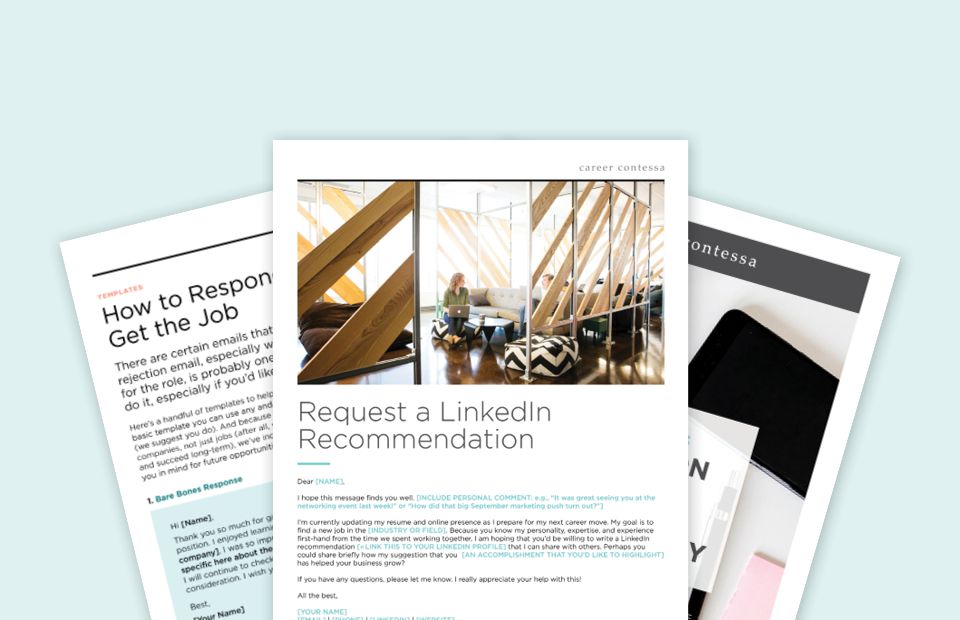How can I stay motivated and positive during a long job search process?
It doesn't feel good when a job search is long. When a job search starts to feel never-ending, it's easy to lose all hope and motivation.
Worry not! Finding the right job within a reasonable timeframe is possible—with a few specific strategies and the right know-how. In this article, we discuss how long it takes to find a job and what you can do to speed up your search. Plus, get tips to remain positive along the way because another annoyance of a job search is its toll on your mental health.
Whether you’ve been
looking for a job for a few weeks or a few months, your emotions undoubtedly feel like a roller coaster ride. While you might experience unexpected setbacks and obstacles, we have tips to help you avoid burnout and keep a positive attitude.
Prioritizing positivity will keep you focused and motivated to continue. You must find ways to maintain
your confidence. Just like any other project, consistency is key!
Table of Contents
How Long Should a Job Search Take?
The most popular question I hear from job searchers is how long should I expect to be looking. Obviously, every job search and person is unique, but there is some data out there to help you!
There were a whopping
9.6 million job openings in the good ol' U.S. of A at the end of March 2023. Now, if you're itching to start a new job ASAP, you might think your job hunt will be a blink-and-you'll-miss-it kind of deal.
But there’s more. Even the most qualified job seekers are still putting in some serious hustle to land a new gig.
- According to one source, the average job search time in 2023 is a solid five months.
- However, another source suggested three months is the current average for job seekers.
In my personal experience both as a job seeker and as a recruiter, I agree that 3-6 months is a realistic target for the amount of time it will take to get a job offer. Plus, my LinkedIn network is full of posts like
this one that back up this data.
One big caveat before we move on. If you've been looking for a new job longer than six months, it's not a reflection of your self-worth! It's worth remembering that behind every successful job seeker, there was one or more of the following:
- Self-doubt, anxiety, and feeling lost
- Rejection, unanswered emails, and ghosting from employers
- Endless hours prepping for an interview—and not always getting the job
- Mental exhaustion and uncertainty
- Fatigue with job applications
Bottom line? If you're feeling this way right now, it's totally normal. We're here to share some tips to re-energize and accelerate your job search.
What Impacts a Job Search Timeline?
We should also discuss that many parts of the job search are outside your control.
Economic Conditions
Consider the state of the economy during your search. Are there mass layoffs happening? Are we experiencing a recession? Or, it could be events specific to your industry that is having a lot of change and turmoil right now.
Time of Year
Believe it or not, the time of year that you're looking and applying can make a difference. According to
this study, January and February are the best times to look for a new job.
Location
Location is less of a factor today thanks to an increase in remote and hybrid work, however, certain regions boast more competitive job markets. Big cities typically offer a greater abundance of employment opportunities compared to smaller cities. Individuals restricting their job search within a limited radius might find fewer options than those who explore job prospects across multiple cities or even states.
Job Scams + Fake Job Postings
There are also
job scam postings, the postings that employers put up just for legal reasons even though they already have an internal hire slated for the role, or the employer who keeps something active "just to see who applies."
Other things that influence your job search timeline that are unique to each job seeker include:
- Experience
- Length of unemployment
- Professional network
- Skills
- Quality of job search materials
- Job search strategy
- Personal brand
Let's focus our energy on what we can control. Coming up I'll share some tips to find a job fast.
How to Speed Up My Job Search (10 Tips)
Here are ten ways to help speed up your job search, starting...now!
1. Update Your Job Search Materials
Your first move in any job search is updating your materials. This includes:
Make sure your resume is organized in a simple format with your most recent and relevant experience at the top. Tailor your resume using
keywords from the job description and include additional sections that help sell your experience—including your best
skills, career highlights, a professional summary, resume
objective, side project, certifications, etc.
Your cover letter is a chance to explain why you're a fit for the job and tell your story. A
compelling career story with a tailored resume is a hard-to-beat combo!
If it's relevant to your field, create a personal portfolio to showcase examples of your work. Actions speak louder than words and showing the receipts of your great work isn't bragging—it's smart!
Lastly, employers will often take a look through your social media profiles as part of the hiring process. Go through them and ensure they are presenting the professional image you want. Make accounts private or remove anything you don't think is appropriate.
2. Do Some Self-Reflection
Take some time to reflect on your skills, strengths, values, and top achievements. Not only will this self-reflection help you recall the work you've enjoyed, but it will also shed light on areas for improvement.
Some self-reflection questions you can ask yourself are:
- What do I enjoy about my current role?
- What do I not enjoy in my current role?
- What are my top skills and strengths?
- What are my top achievements and the results?
- What do I want in my next job?
- Where do I excel at work?
- What skills are required for my job?
- Where do I overlap between skills I'm good at and skills needed for my job?
Having a better understanding of your top skills, achievements, and areas where you excel will give you some ideas of job titles and careers to pursue.
This is also a great time to reconsider the so-called dream job—and let it go. Dream jobs don't exist. Instead of what might "look good on paper," center your
core values to find
the "good enough" job for you.
3. Polish Your Personal Brand
Your reputation is based on the things you've already done. Your personal brand is based on how you want people to see you. This means your personal brand must be visible. When you do things, tell people. Pick the channel you're most comfortable with such as Twitter/ X, Facebook, Instagram, Threads, LinkedIn, etc.
Next, share your ideas, updates, and opinions. Follow other thought-leaders in your area, comment on other people's content, etc. Everyone has a personal brand but if it's not visible, no one will care.
Pro Tip: I use
LinkedIn as my main place to build my personal brand and my podcast. I share advice, tips, and engage with other career experts, etc. When I accomplish big things, I share them will my community. Self-advocacy is important throughout your career, but especially in a job search.
4. Make a List of Target Companies
"Spray and pray" is not a job search strategy.
Spraying your resume everywhere with online job board applications and praying a company will call you for an interview is a waste of your time, their time, and will probably land you in a job that isn't a long-term fit.
Instead, make a list of target companies and go deep with your search. Find target companies by thinking about the following:
- Products you're obsessed with
- Services you can't live without
- Companies with mission statements you support
- Companies with the department or skillset you're interested in
- Companies that offer you the life "things" you value most
You can also reverse-engineer this by finding open jobs and then researching the companies. Only apply to the job after the company meets your top criteria.
Make a list of 10 target companies and why they made the list. Then start networking with people at those companies and filling any skills gaps.
Only apply to jobs with intention and clarity around WHY you're applying there. It will be better for all the people involved.
5. Tell Your Network You're Job Searching
One of the best ways to find a new job is via networking. According to
HubSpot, 85 percent of jobs are filled through networking.
Seventy percent of jobs are never even published publicly, meaning that so many opportunities arise simply from talking to people — whether it’s a formal coffee chat or letting your network know you're looking.
When you're
asking your network for help with your job search, you need to make it easy for them to help. This means telling them about your top skills, what you're looking for, and how they can help. We
LOVE this example on LinkedIn and you can share something publically on LinkedIn or you can send it via email directly to people.
6. Determine What Job Resources Will Help You
In addition to networking and trying to land a job via
informational interviews and targeting companies, you will also want to use other job resources such as
online job boards, referrals, and contacting hiring managers directly.
Don't forget the power of an optimized LinkedIn profile, too!
Eighty-five percent of recruiters think LinkedIn is the most effective social media platform for vetting talent, sourcing, and hiring. When I was a recruiter, LinkedIn was the only tool we used outside of our
job board and employee referrals so I can back up how important this is.
Plus, if you're looking to find jobs that were shared by your network on LinkedIn so you can reach out to a person directly about the role, watch this
video.
7. Quality > Quantity: Apply to The Right Jobs With Tailored Materials
Regardless of how you're applying for a job, the materials you send along need to be tailored to the specific job and company. As we mentioned earlier, the job posting is your guide to what keywords, skills, software programs, and more need to be included in your resume bullet points.
You have a lot of work experience, but the hiring team only wants a snapshot of your most relevant experience.
It's better to apply to fewer jobs with very specific materials than many jobs with a general application.
8. Send Your Application To a Real Person
Next, try to add the person as a connection on LinkedIn or do a Google search to figure out how the company writes its email addresses.
Send your application directly to the person with a short email explaining your interest, a copy of your resume, and a link to your LinkedIn profile. Don't forget to
name your resume correctly.
In a few weeks, you can follow up with the recruiter directly. This doesn't guarantee you'll get an interview but the chances of a real person looking at your work have increased tenfold with this strategy.
9. Create a Credibility Portfolio
I learned about this concept of a
credibility portfolio from Varun on LinkedIn. The general advice is that a candidate who can show receipts of their work is going to stand out and be more credible than a candidate who just talks about their work.
Yes, it's a bit more work but totally worth it! Here are Varun's three steps for creating one:
Step One: Research credibility markers important for your interviewer
- What skills are they looking for in the job description
- What is the internet saying the company can improve
- If it is a startup, what are the founders sharing in interviews
- How does the company communicate with its shareholders
- What are the current employees talking about on their social platforms
Step Two: Brainstorm portfolio ideas from experience
- One-page reports of publicly available work
- Case studies based on hypothetical situations
- Slide deck of project workflow, tool stack, and decision-making-process
Avoid company-sensitive information by normalizing data in percentages and creating hypotheticals. For example, you can’t share how you improved a car battery, but you can take the example of a Tesla battery and share your process. You will come up with creative and safe solutions once you start ideating.
3. Brainstorm targeted portfolio ideas using public info
- Record a presentation creating a new strategy for one of their products
- Use public data available from their industry to chart the next advancements
- Create a dashboard/application/UI/go-to-market strategy for your target firm
Here, the objective is not to be right as you don’t have all the data. But you want to showcase your skills and acumen.
Spending 1-3 days to develop a Credibility Portfolio can do wonders for your interview game. It will help you regain your self-confidence and get you closer to a job offer that you will love.
10. Track Your Progress
The job search has a lot of moving parts and variables! Keeping track of applications, the interview process, dates to follow up, and feedback you receive is a lot!
5 Tips to Help Stay Positive in Your Job Search
Here are a few easy ways to help you stay confident when the process is getting you down and survive this job search no matter how long it takes:
1. Create A Routine
As with most goals in life, creating a routine with manageable steps is a great way to keep yourself organized, accountable, and motivated. I recommend that you set up a daily routine that is one part job search and one part something you like.
Back when I was on the hunt, I would carve out one hour on three weekday mornings to search for jobs, drink tea, and leave my phone/email out of sight. Then, every Sunday I would apply to my list of jobs before heading out for my day. It’s important to incorporate something you like into your routine to balance the stress of searching and applying.
2. Plan a Job Searchers Happy Hour
Before you start Yelping the best happy hour deal in your city, let me clarify: this is a “job search happy hour.” Job search happy hour is about finding people you know who recently got a new job or are actively looking for a job and connecting over shared experiences (sort of like a hyped-up version of an informational interview).
However you choose to connect is up to you (although there are now some great networking apps for that), but the great thing about sharing job search stories with others is that you are reminded that it’s a process that can be hard on everyone. In addition, you also can get ideas from your connections’ job search stories and incorporate them into your own strategy!
3. Break Your Job Search Into Mini-Goals
We know, we know. The job is the goal, but you can set smaller, more achievable goals on the road to your great new career.
Mini job search goal examples:
Adding these smaller milestones can greatly impact your mental well-being and keep negative thoughts far away from your precious positive mindset!
4. Reward Yourself
Self-care is always important—especially amid a soul-sucking job search. Even the most successful people take time to recharge and weed out negative thoughts rooted in frustration.
Reward yourself once you've set your weekly and monthly job search goals. Maybe the reward is just giving your brain the night off from thinking about job searching, or maybe it’s something more active like a pedicure with your mom.
Regardless, it’s important to celebrate the progress you are making. Remind yourself that you are moving forward even if you don’t have an offer letter in hand.
5. Create a Positive Mantra
You might roll your eyes and call this one woo-woo, but it's helpful.
When you're in week five or six of your job search, waiting for replies from recruiters, follow-ups on sent emails, or waiting to hear back after a phone interview,
mantras can become incredibly useful. It doesn't need to be cheesy or overdone, either.
Mantras can include:
- I am much more than my employment status.
- The right opportunity is within reach.
- I am keeping my priorities at the forefront of my job search.
- My next exciting career move is around the corner.
















